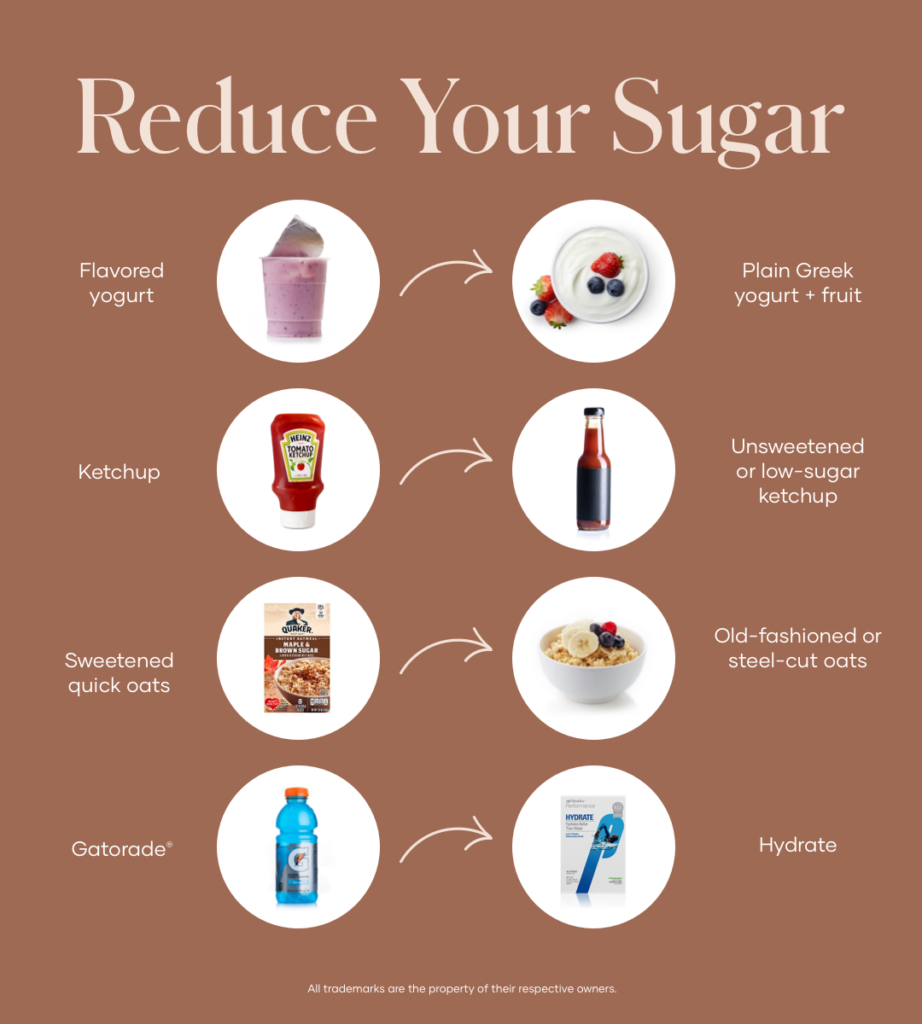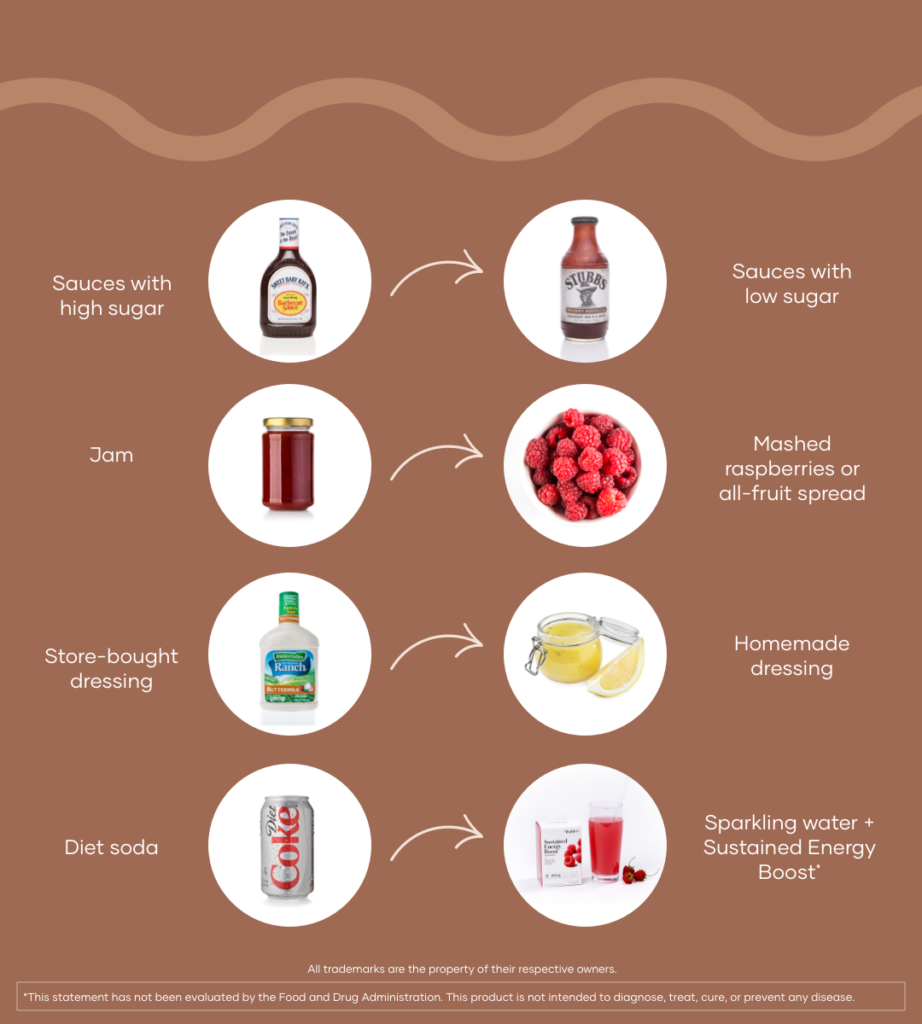Ok everyone, the next big step in our Pantry Takeover is a HIGH-IMPACT one for your health and weight goals…
⭐ CHALLENGE: Reduce your added sugar intake (and the sugar in your pantry!)
You may be surprised to learn that there are some pretty pain-free ways to do this! That’s because a lot of sugar is hiding in foods you can swap for better choices. You can also use healthy natural sugar alternatives.
Why do we want to limit sugar? Get this:
While the average American adult consumes 68-77 grams of added sugar per day, the American Heart Association recommends no more than 25–35 grams per day. (And no more than 12–25 grams for kids.) [This is a conservative amount, it is often much more as we have dessert at each meal and snack. Our blood sugar amount is one teaspoon. Same with kids, toddlers. Think what happens when 10 tsp of sugar from a glass of apple juice or soda goes to the brain of a child. Orange juice…It is faster than cocaine.
Annnnnd… (you knew this was coming), excessive sugar intake can contribute to many health conditions, including:
Insulin resistance
Weight gain
Inflammation
Elevated lipids
Weakened immune system
How does sugar add up in your diet?
Sweetened flavored yogurt for breakfast – 15 g
PB&J for lunch – 22 g
Granola bar snack – 20 g
Pasta sauce with dinner – 9 g
= 70 grams of added sugar!
Isn’t that crazy?
That’s 2x more than what the AHA recommends.
Here’s what you can do to reduce your ADDED sugar intake:
Avoid sugar in “hidden” places. Read your food labels and see how much added sugar is in your sauces, dressings, condiments, and packaged foods.
Make simple swaps (see below!) and look for other unsweetened or low-sugar options.
Use healthy sugar alternatives in moderation.
Next time you are shopping, check your labels for how much added sugar is in your foods.
Put your Comment below or share a picture in the Comments of your favorite foods to eat when you have a sugar craving. This just might give someone else a good idea!
Please check out these excellent references, below!
References:
Aeberli, I., Gerber, P. A., Hochuli, M., Kohler, S., Haile, S. R., Gouni-Berthold, I., & Berneis, K. (2011). Low to moderate sugar-sweetened beverage consumption impairs glucose and lipid metabolism and promotes inflammation in healthy young men: a randomized controlled trial. The American Journal of Clinical Nutrition, 94(2), 479–485. https://doi.org/10.3945/ajcn.111.013540
Malik, V. S., Pan, A., Willett, W. C., & Hu, F. B. (2013). Sugar-sweetened beverages and weight gain in children and adults: a systematic review and meta-analysis. The American Journal of Clinical Nutrition, 98(4), 1084–1102. https://doi.org/10.3945/ajcn.113.058362
AlEssa, H. B., Bhupathiraju, S. N., Malik, V. S., Wedick, N. M., Campos, H., Rosner, B., Willett, W. C., & Hu, F. B. (2019). Carbohydrate quality and quantity and risk of type 2 diabetes in US women. The American Journal of Clinical Nutrition, 110(3), 576–584. https://doi.org/10.1093/ajcn/nqz132
Jentzmik, F., Bauersfeld, U., Kämmerer, U., & Jentzmik-Sturges, U. (2018). Effects of fructose and glucose on lipid metabolism when consumed at energy-balanced levels. The American Journal of Clinical Nutrition, 107(6), 978–989. https://doi.org/10.1093/ajcn/nqy062
Vighi, G., Marcucci, F., Sensi, L., Di Cara, G., & Frati, F. (2008). Allergy and the gastrointestinal system. Clinical & Experimental Immunology, 153(Suppl 1), 3–6. https://doi.org/10.1111/j.1365-2249.2008.03713.x
https://www.heart.org/…/sugar/how-much-sugar-is-too-much
https://www.healthline.com/nutrition/sugar-and-inflammation


